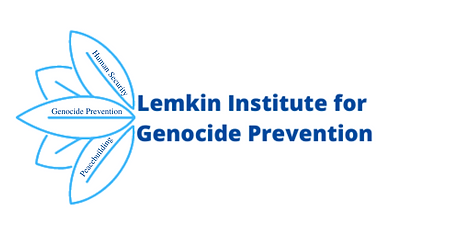Dutch Government Collapses Over Plan to Further Limit Immigration
Prime Minister Mark Rutte, one of Europe’s longest-serving leaders, had struggled to reach an agreement with his coalition partners about migration, including more restrictions.

The Dutch government collapsed on Friday after the parties in its ruling coalition failed to reach an agreement on migration policy, underlining how the issue of asylum seekers coming to Europe continues to divide governments across the continent.
Prime Minister Mark Rutte, who was overseeing his fourth cabinet and is one of Europe’s longest-serving leaders, told reporters on Friday that he would submit his resignation to the king.
“It is no secret that the coalition partners have very different views on migration policy,” Mr. Rutte told reporters in The Hague on Friday. “And today, unfortunately, we have to draw the conclusion that those differences are irreconcilable.”
The disintegration of the government triggers new general elections in the fall, and a caretaker government headed by Mr. Rutte will remain in place until then.
For months, the parties in the coalition government had struggled to come to an agreement about migration, debating terms of family reunification and whether to create two classes of asylum: a temporary one for people fleeing conflicts, and a permanent one for people fleeing persecution.
Dutch news organizations reported that Mr. Rutte had called for limiting the entrance for children of war refugees who were already in the Netherlands and for making families wait at least two years before they could be reunited. Mr. Rutte denied those reports, according to the Dutch broadcaster NOS.
But arguments about migration policy continued to split the Dutch government, which already has tougher immigration policies than some other E.U. nations. This week, two parties in the governing coalition, the Christian Union and the centrist D66, determined that they could not come to terms with Mr. Rutte’s party, leading to a crisis in the government.
“One of the values that are important with the proposals is that children grow up with their parents,” a statement by the Christian Union party said. “As a family party, that is what we stand for.” The party said it wanted to work with “heart and soul for a humane and effective migration policy.”
Migration has proved an intractable issue among many European voters and political parties, fueling the popularity of nationalistic and right-wing parties around the continent, and leading to sharp criticism from rights activists over how governments have treated migrants. Last year, Dutch aid agencies struggled to help hundreds of asylum seekers who were living in a makeshift camp outside an overcrowded reception center, in what aid workers described as dismal conditions.
Last year, more than 21,000 people from outside the European Union sought asylum in the Netherlands, according to the Dutch government. More than 400,000 people immigrated to the Netherlands overall in 2022, the office said, an increase from the year before.
The large numbers of arrivals have strained the Netherlands’ housing capacity, which was already suffering a shortage for the country’s more than 17 million people.
The ruling parties of the Dutch government had met repeatedly in recent days to try to find common ground, and Mr. Rutte’s cabinet met late Friday for its own talks.
“We talked for a long time, we are coming here tonight because we did not succeed,” the defense minister, Kajsa Ollongren, told reporters as she walked into the cabinet meeting, according to The Associated Press.
“Everybody wants to find a good, effective solution that also does justice to the fact that this is about human lives,” the finance minister, Sigrid Kaag, a member of the D66 party, said before the talks began.

Over the last decade, as thousands of people have sought asylum in the European Union from Africa and the Middle East, far-right parties that oppose immigration have gained popularity across the 27-member bloc. In some countries, their success has pushed center and right-wing parties to lurch further to the right on immigration and asylum policy.
In June, Spain’s far-right Vox party did better than expected in regional elections, and last fall, the Sweden Democrats, a party with roots in the neo-Nazi movement, won 20.5 percent of the vote in Sweden, becoming the second largest party in Parliament.
In France, the far-right leader Marine Le Pen, who has long held an anti-immigration stance, reached the final round of the presidential election last year. In Hungary, Prime Minister Viktor Orban has clung to power in part by railing against immigration.
And last year Italy elected a hard-right coalition led by Giorgia Meloni, whose long record of criticizing immigration and the European Union has sown concern about the nation’s reliability in the Western alliance.
Mr. Rutte had supported European Union efforts to limit migration, visiting Tunisia last month with Ms. Meloni and a top E.U. leader, Ursula Von der Leyen. In a joint statement, the leaders said the European Union would provide 100 million euros, or about $109 million, to Tunisia for “border management” and search-and-rescue and anti-smuggling efforts.
The last time Mr. Rutte and his cabinet resigned was in 2021 over a report highlighting systemic failure by his government to protect thousands of families from overzealous tax inspectors. But Mr. Rutte weathered that crisis, emerging as the Netherlands’ leader yet again after nine months of negotiations that December.
(c) 2023, New York Times
https://www.nytimes.com/2023/07/07/world/europe/dutch-government-collapses.html#:~:text=The%20Dutch%20government%20collapsed%20on,divide%20governments%20across%20the%20continent.



